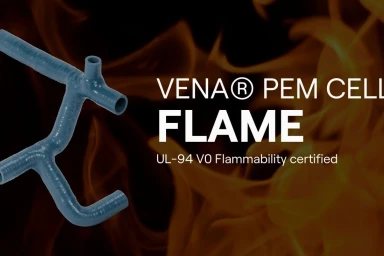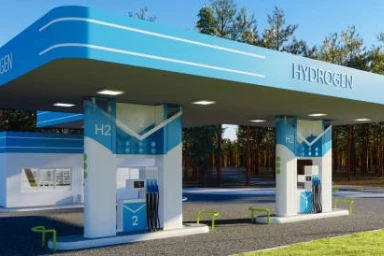Fuel Cell Technology as the Green Propulsion Solution for the Maritime Industry

In recent years, the marine industry has been seeking sustainable and efficient alternatives to traditional propulsion systems. One promising solution that has gained significant attention is the use of fuel cells. Fuel cells offer a clean and reliable power source for marine vessels, making them an ideal choice for the industry's evolving needs. Let's explore why fuel cells are considered the solution for the marine industry.
Advantages of fuel cells over conventional propulsion systems in marine industry
Fuel cells, particularly hydrogen fuel cells, have several advantages over conventional propulsion systems.
Reduction of emissions
First and foremost, they produce zero harmful emissions. By utilizing hydrogen as the fuel source, fuel cells generate electricity through an electrochemical reaction, with water vapor being the only byproduct. This eliminates air pollution and reduces the industry's carbon footprint, addressing environmental concerns and complying with stricter emission regulations.

Improvement of responsiveness
One type of fuel cell commonly used in the marine industry is the proton exchange membrane (PEM) fuel cell. PEM fuel cells operate at low temperatures, allowing for faster start-up times and greater responsiveness, crucial factors in maritime applications. These fuel cells are compact and lightweight, making them suitable for various vessel sizes and layouts.
Better energy efficiency
Fuel cells also offer higher energy efficiency compared to traditional combustion engines. While internal combustion engines waste a significant amount of energy as heat, fuel cells convert a higher percentage of the fuel's energy into usable electricity. This improved efficiency translates into reduced fuel consumption, lowering operating costs for marine operators.

Furthermore, the integration of fuel cells with electrolyzers creates a closed-loop hydrogen system. Excess energy produced by the fuel cells can be used to power the electrolyzers, which split water into hydrogen and oxygen. The hydrogen produced can then be stored and used as a fuel source for the fuel cells, creating a self-sustaining energy cycle.
Benefit for other sectors
The adoption of fuel cells in the marine industry also supports the development of hydrogen infrastructure. As the demand for hydrogen fuel cells grows, the production, storage, and distribution infrastructure will expand, benefiting other sectors and facilitating the transition to a hydrogen economy.
Conclusions
In conclusion, Venair plays a crucial role in the marine industry by specializing in the manufacturing and design of hoses for fuel cells. Through rigorous engineering and a deep understanding of the challenges specific to the marine environment, Venair contributes to the development of efficient and reliable fuel cell systems. By utilizing advanced materials and technical expertise, our hoses ensure the safe and seamless conduction of gases within fuel cell setups, thereby facilitating the progress of cleaner and more sustainable marine propulsion technologies.






